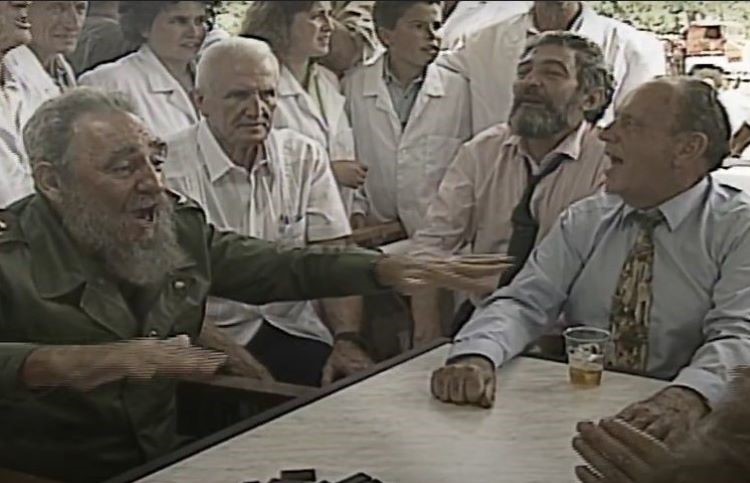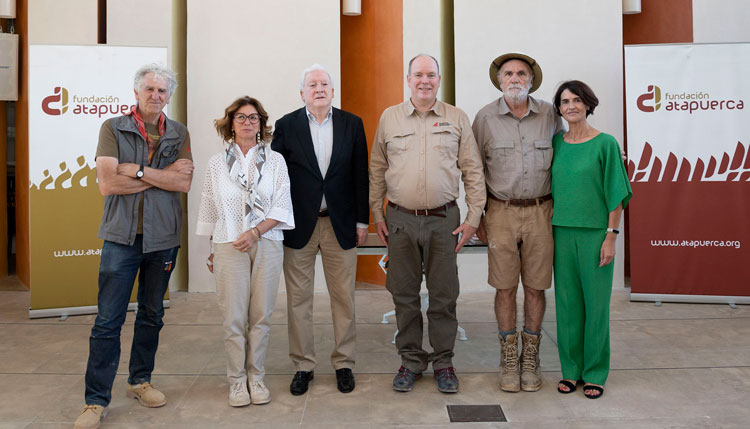Eduardo González
On July 27, 1992, exactly thirty years ago, Cuban President Fidel Castro paid a two-day visit to the land of his ancestors, Galicia, where he was received with all the generosity by someone as ideologically distant from him as the President of the Xunta de Galicia, Manuel Fraga.
Castro and Fraga were true ideological opposites. Fidel Castro (1926-2016) was dictator and leader of the revolution in Cuba from 1959 to 2008, at the head of the Communist Party. For his part, Manuel Fraga (1922-2012) was Minister of Information and Tourism during the dictatorship of Francisco Franco, Vice President for Home Affairs during the first government of the Monarchy, founding president of Alianza Popular, the germ of the current Partido Popular, from the early days of the Transition, and president of the Xunta de Galicia from 1990 to 2005.
However, both were united by the most sensitive point for many Galician families: the memory of emigration. Fidel Castro’s father was born in the town of Láncara in Lugo and emigrated to Cuba, where he married and stayed forever. Manuel Fraga’s father also emigrated to Cuba from Galicia, but returned a few years later with the rest of his family, including his sons Manuel, who was born in Villalba (Lugo), and two other brothers born on the island.
Fidel Castro’s trip to Galicia took place during his first official visit to Spain since coming to power after the 1959 revolution. In 1978, the then Prime Minister, Adolfo Suarez, made the first official visit of a Spanish (and European) chief executive to Cuba, at Castro’s invitation. A year later, Suarez participated in the sixth summit of non-aligned countries held in Havana in 1979 and, just six years later, Felipe Gonzalez received Fidel Castro and Nicaraguan President Daniel Ortega in Madrid, on the occasion of a technical stopover of both after attending the funeral of Soviet leader Yuri Andropov in Moscow. In November 1986, the Spanish Prime Minister paid an official visit to Cuba, where he was awarded the Order of José Martí.
However, bilateral relations deteriorated seriously in 1990 due to the so-called “Embassy crisis”, which occurred after several Cubans took refuge in the Embassies of Czechoslovakia, Belgium, Italy, Canada, Switzerland and Spain in Havana with the intention of leaving the country. The consequence of this was a bilateral crisis, with accusations between the two parties, which was further aggravated by the decision of the Cuban security forces to intervene in the Embassy, in contravention of International Law and provoking a strong diplomatic conflict with Spain.
Under these circumstances, Manuel Fraga made a first visit to Havana in September 1991. Amidst the expectations and doubts of the Spanish delegation, Fidel Castro received the Galician president at José Martí Airport practically with the honors of a head of state. Fraga responded with a cordial handshake and was moved when he was received by a group of Cuban bagpipers who played the Hymn of Galicia, a piece composed at the end of the 19th century and whose premiere took place precisely in Havana in 1907.
In the following days, Castro did not miss any of the events on Fraga’s agenda in Cuba and the Galician president himself even shed some tears during a visit to the family home in Manatí, where two of his brothers were born. In the midst of so many emotions, Fraga did not hesitate to demand the end of the US embargo and Fidel Castro declared that Fraga had demonstrated with his trip -which he defined as an “act of courage”- that he was “more left-wing than many left-wing people”, in a clear allusion to his problems with Felipe Gonzalez.
Trip to Galicia
Less than a year later, Fidel Castro took advantage of his participation in the second Ibero-American Summit of Heads of State and Government, held on July 23 and 24 in Madrid in the midst of the celebrations for the Fifth Centenary of the Discovery, to return a visit to Fraga. After participating in the Summit, and after visiting the Cuban pavilion at the Universal Exhibition in Seville, the Cuban president arrived on July 27 at Lavacolla airport in Santiago de Compostela, where he was personally received by the Galician president, walked the streets of the city (with the Plaza del Obradoiro decorated with Cuban flags) and had dinner with Fraga in a private room of the Vilas restaurant. The next day, he visited Lugo (where he walked along the Roman wall) and went to Láncara, a small municipality of barely three thousand inhabitants, located about 30 kilometers from Lugo, where the most emotional moments of the trip took place.
In Láncara, Castro visited the humble house where his father was born (“Here was born in 1875 Ángel Castro Argiz, a Galician who emigrated to Cuba where he planted trees that still flourish”, reads a sign on this small stone house), in front of which the Cuban leader mentioned, as moved as Fraga had been in Manatí, the “homesickness” that his father felt for Galicia. “I feel honored that my father’s house is not a palace, but a humble hut,” he told reporters. “Now I understand why our parents had to emigrate,” he told Fraga. Later, he met a first cousin and two second cousins and was declared Favorite Son of Láncara by the hand of Fraga himself, in the midst of journalists and about 200 people who accompanied him and cheered (“Cuba yes, Yankees no!”) during his tour of the town. Witnesses say that Fraga seemed even more excited than Castro.
The supreme moment, in terms of exaltation of homesickness, was his invitation to a popular romeria in the parish of Armeá, in Láncara, which was attended by about a thousand people and in which Fidel Castro and Manuel Fraga gorged themselves with Ribeiro wines, queimada, empanadas, octopus á feira, grilled sardines, Padrón peppers and doughnuts. The party concluded with a game of dominoes in which, according to witnesses, Fraga won twice and Castro once. There was so much shouting while the dominoes were being dealt (“Fidel, my friend, Galicia is with you”), that the Galician president was forced to play himself to order “seriousness and silence”. During the queimada, Fraga toasted to “the independence and progress of Cuba” and Castro assured that “Cuba will resist the U.S. blockade”.
After some time, Manuel Fraga assured in his memoirs that he had never regretted his trip to Cuba or his reception of Castro in Galicia because thanks to it “some prisoners were freed”. Specifically, and thanks to the mediation of the Galician president, the Cuban leader released about twenty prisoners convicted of crimes “against the security of the State”.







